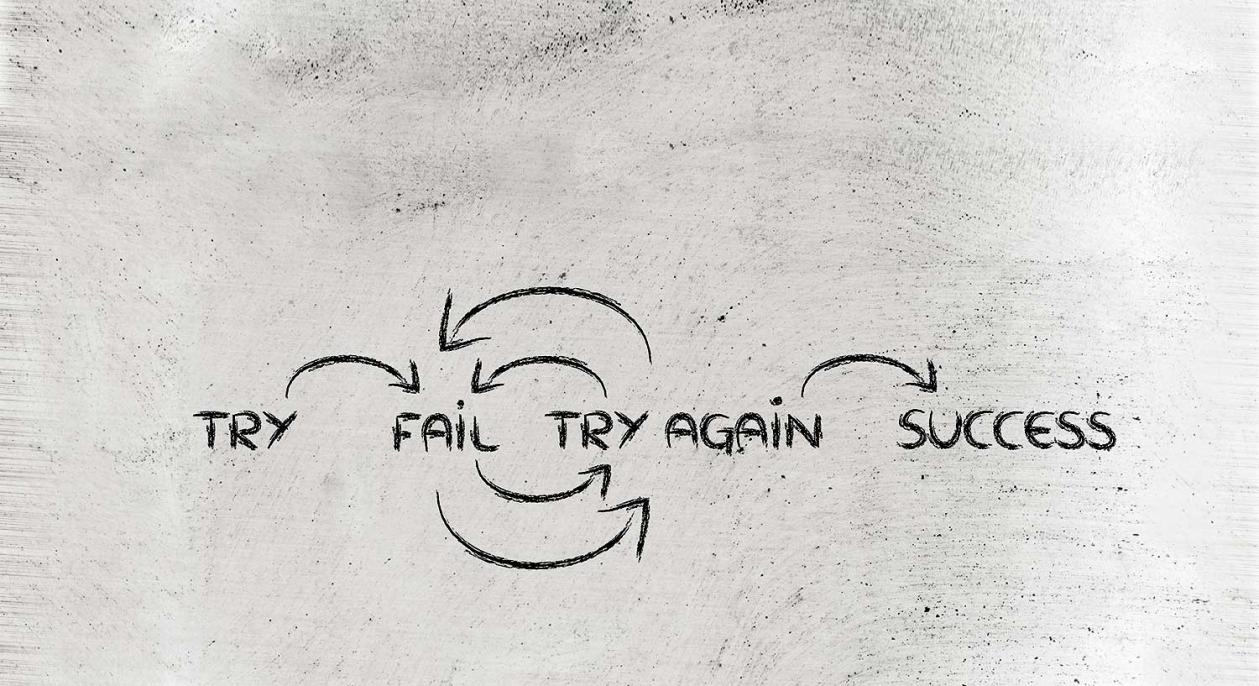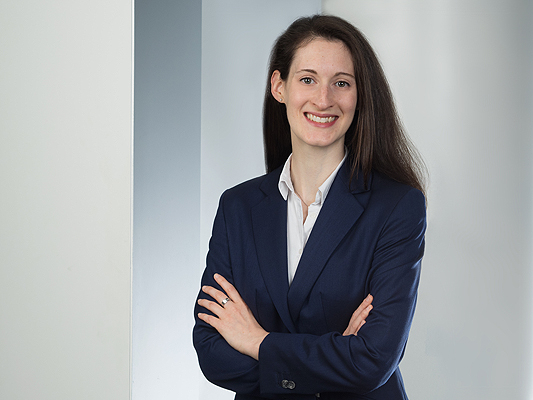
Faith Photography-stock.adobe.com
When science fails: "You might as well spare yourself the effort!"
Science, too, has its share of failures and mistakes. But nobody likes to talk about it in public. The Journal of Unsolved Questions takes a completely different approach. It publishes zero results.
Tatjana Dänzer, editor-in-chief of the Journal of Unsolved Questions (JUnQ), talks to Christine Prußky about learned behavioral patterns and ways to break them down.
Dr. Dänzer, you have a doctorate in chemistry and work in industry. Did you fail in science or is it rather that science failed to hold your interest?
Dänzer: Neither nor. I went into industrial research because it has always been my ambition to work on the development of practical household products that make it easier to cope with everyday life. But, you know what? People quite often ask me this question.
That just shows that society has different and quite imprecise notions of success and failure. You head the Journal of Unsolved Questions (JUnQ). This scientific journal publishes research that didn’t lead to success. What made you enter into such a commitment?
It all started when I was preparing for my Diplom thesis a few years ago, I noticed that science prefers to sweep negative or zero results under the carpet. I thought that was a pity. Today, I am absolutely convinced it makes no sense. By giving researchers the opportunity to publish zero results and communicating when things go wrong or do not work, science could save an incredible amount of time and resources. "You might as well spare yourself the effort!" – You hear this sentence, if at all, rather by chance while drinking coffee.

Tatjana Dänzer holds a doctorate in chemistry and is honorary editor-in-chief of the Journal of Unsolved Questions. She currently works as an engineer in the Qualification/Validation department at Testo Industrial Services.
Why is that?
It has a lot to do with the pressure to succeed. Scientists have to build a reputation. They want to be associated with progress, not with setbacks. Dead ends are therefore only discussed in close circles and rarely in public, as in scientific journals. This is a pattern of behavior that is learned. Take research groups, for example. We only ever celebrate when someone is successful. Failed projects are simply shelved and then forgotten. That has a lot to do with people’s ego.
Please explain…
For example, whether someone makes their failure public and publishes zero results is a question of character and self-confidence. Professors simply do not want to see zero results in the doctorates they supervise. They fear for their good reputation. That is not only nonsensical, but also quite wrong – a zero result does not mean there was no outcome at all. Rather, the method just does not lead to the goal. Realizing this and sharing it in the form of a publication is, in my opinion, an expression of scientific professionalism. Science has to be economical with its resources. Creating a greater awareness of how things sometimes go wrong could avoid it happening again.
Nobel Prize winner Stefan Hell, who received support from the Volkswagen Foundation at the beginning of his career, advocates rewarding what he calls "honorable failure". He thinks it would make researchers more willing to take risks. You, on the other hand, seem to be emphasizing the efficiency aspect.
One does not exclude the other. It is, of course, better when research runs smoothly and I can avoid the personal stress that comes when it does not and I can’t manage my project in the time and with the resources planned. But you also have to be courageous, and sometimes you have to make the very attempt that others have advised against. I speak for myself, already having achieved successes in this way. Zero results can be a starting point for research breakthroughs.
Since it was launched nine years ago, the Journal of Unsolved Questions has appeared 19 times. The number of articles published in each issue, though, is dropping off.
That's right. Early on, there were more submissions. But that is not the problem: there are still enough. The fact that we publish relatively few articles has more to do with our quality standards.
What are your standards like?
JUnQ only publishes articles that pass the peer review process. This evaluation checks whether the methodological tools have been applied correctly in the work presented and whether the experiment has been conducted in line with the current state of knowledge. So if someone should have tried to examine radioactivity with a microscope, this shows that the person is simply not up to date. We simply wouldn’t accept such a paper. Our selection criteria are strict. We usually publish just one out of every three to four submissions.
Your journal was founded – and is still dominated – by scientists. Is it that because the humanities play no role since they do not know zero results?
Counter-question: Doesn’t philosophy actually live completely from unsolved questions – and could this not also be understood as a kind of zero result? We are, then, also open to contributions from the humanities. Incidentally, we have also created a special section for unresolved everyday issues, called "Question of the Month".
In Greek mythology, it is virtually a given that the hero eventually fails, and literature, art and film are teeming with failures. What would have helped you more in these hard times for science – a culturally different approach to failure or simply a second chance and research funding to make it possible?
Money and time are a big factor. Project schedules and funding periods are tight and do not allow for a second chance. This naturally leads people to take the easiest route. Any serious attempt to promote a new understanding and a new approach to dealing with failure in science must be prepared to spend more money on related research. At the same time, society and policy-makers need to understand how science works. We cannot produce results at the push of a button. Think of the research on finding a corona vaccine. A vaccine simply cannot be developed overnight. Setbacks are unavoidable: They are part of it – and, as long as no human lives are at risk, should not be seen as a debacle.
